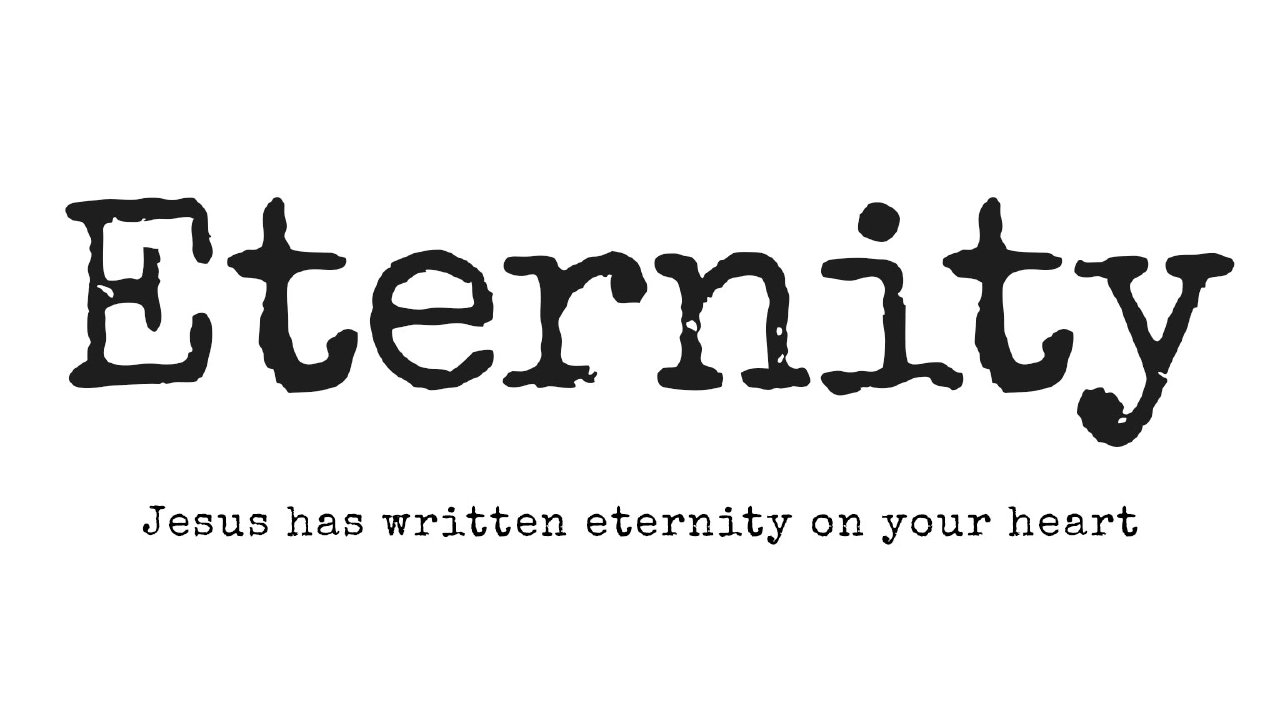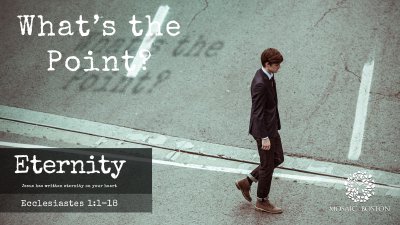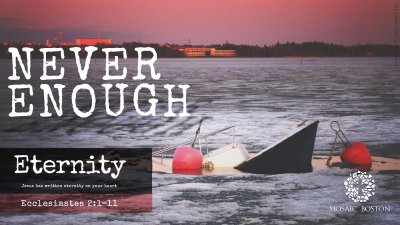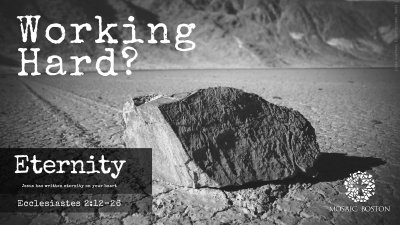Who you are today is a direct result of your past. Your previous thoughts, desires, actions, and relationships have shaped your present reality. Scripture describes this reality by using the agrarian language of reaping what you sow.
In Ecclesiastes 11, Solomon tells us "Cast your bread upon the waters for you will find it after many days." He's not talking about feeding ducks in Frog Pond. He's talking about sowing generously when you can, so you will reap an abundant harvest. In verse 6, he says "in the morning sow your seed, and at evening withhold not your hand, for you do not know what will prosper, this or that, or whether both alike will be good."
The law of sowing and reaping applies to every area of life: money, health, relationships, education, vocation, marriage, children, and is especially true in the spiritual realm. Join us tomorrow to learn about how to wisely apply this principle in our lives to reap a harvest of plentiful blessing.

Sow Your Seed
November 17, 2013 • Ecclesiastes 11
Never Enough
September 8, 2013 • Ecclesiastes 2:1–11
What would your life look like if you had unlimited resources? I'm talking about virtually infinite wealth. What would you spend your money on? What would you spend your time doing? Who would your friends be? What would your relationships look like? Where would you live? What would you be pursuing? What would you live for? As we continue our journey searching for the meaning of life with Ecclesiastes, we get a glimpse of what goes on in the man's heart as he "tests it with pleasure." Could pleasure be the purpose of life?
Working Hard?
September 15, 2013 • Ecclesiastes 2:12–26
Do you have a job? Do you want a job? Do you hate your job? Do you want another job? (Sorry to be asking you these questions if today is your day off!) We’re always either preparing to work, working, or resting from work. Because work is such a substantial part of our lives, if we don’t learn to enjoy it, we’ll never learn to enjoy life. The cheery Ecclesiastes, in considering work, concludes by saying: “So I hated my life” in 2:17 and “I hated all my toil” in 2:18. Can you give a hearty amen to this conclusion? Well then you’re in luck, because this sermon is for you!






